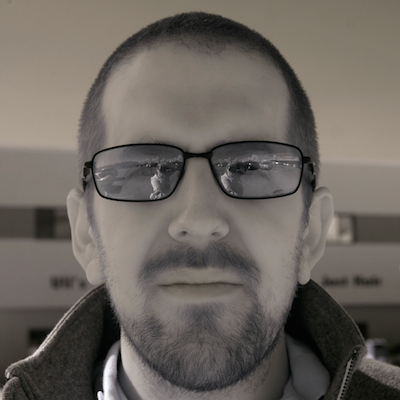After receiving his computational science Ph.D., Geoff Womeldorff realized he wanted somehow to help mentor other students through the degree process. One of his first opportunities was as a postdoc, by talking to students in his group about the ins and outs of graduate school, selecting a professor, choosing a research area, and day to day academia.

“One of the big SIAM conferences is Computational Science and Engineering. I was part of a mentoring exercise there – you just put your name into a hat and say, ‘Yes, I’m willing to talk to students and give the benefit of some of my experience.’ Generally, the students apply to a program and get some sponsorship to attend the conference, and they’re matched with a mentor. You meet a couple of times and you have lunch or dinner with them. You suggest sessions for them to go to at the conference, and talk to them about any issues they might have or be curious about.”
Recently, Womeldorff returned to the Department of Scientific Computing (DSC) to continue in that vein – he wanted specifically to address the graduate students to let them know what it’s like to work in a research lab, and the types of projects that are part of a typical work day in a laboratory environment.
“I’m glad I’m here – I had a few questions I wanted to ask Max [Gunzburger] about an idea I’ve been thinking about. This visit gives me an opportunity to do that, but my main reason in asking to visit was to give back. I’m grateful for the situation I’m in, so I wanted to try and share this career opportunity with people who are where I was when I was here -- sort of let them know here’s what this life is like in the research lab I’m working in."
“I feel like the training that I got at this department was perfectly suited for the position I have now. I’m not a physics expert or a computer science expert or math expert, but I know enough of everything to function and contribute in circles with people who are experts and be the glue between those disciplines.”
Another reason for Womeldorff’s return was to alert DSC students to a summer school held at the Los Alamos National Laboratory’s Applied Computer Science group in Los Alamos, New Mexico where he works. Womeldorff is one of the mentors for the upcoming session, and the summer school is a good opportunity for graduate students to experience a summer in a national research lab environment.
”We run what’s called a co-design summer school. Co-design is the Department of Energy buzzword that means multidisciplinary scientific computing. The summer school funds six Ph.D. candidate level students - usually some flavor of math and physics, computer science, scientific computing - and we have a few SME applications experts and some scientific computing people who are willing to be mentors. They group advise the students along some project that lasts 10 weeks along the course of the summer. So six students, ten weeks, give them a starting point that actually functions and see what they can do with it. Sometimes we get interesting things out of it, but probably the most useful thing for us is it’s a recruiting tool. It gets people accustomed to working in this environment and doing these kinds of projects. It gives them a real picture of what it’s like."
“I’m looking forward to being one of the mentors for the program. I’ve talked to students here who have expressed interest and been enthusiastic about the program, so maybe someone who’s here will participate this summer.”
Geoff Womeldorff
For more information on LANL and the Applied Computer Science group go to: www.lanl.gov
Click here for more information on the Co-Design Summer School.

